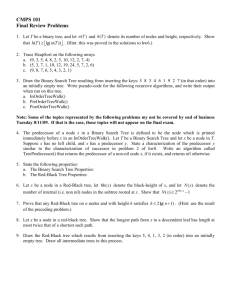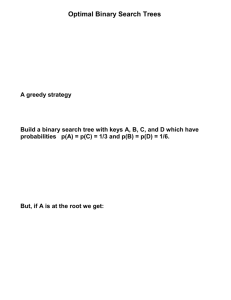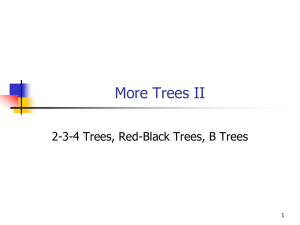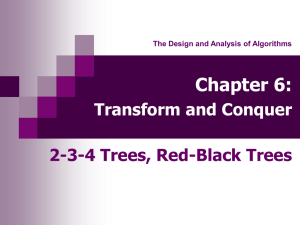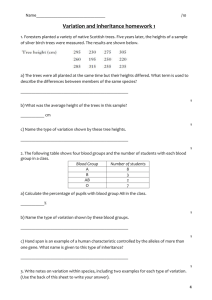Red-black trees - Department of Computer Science
advertisement
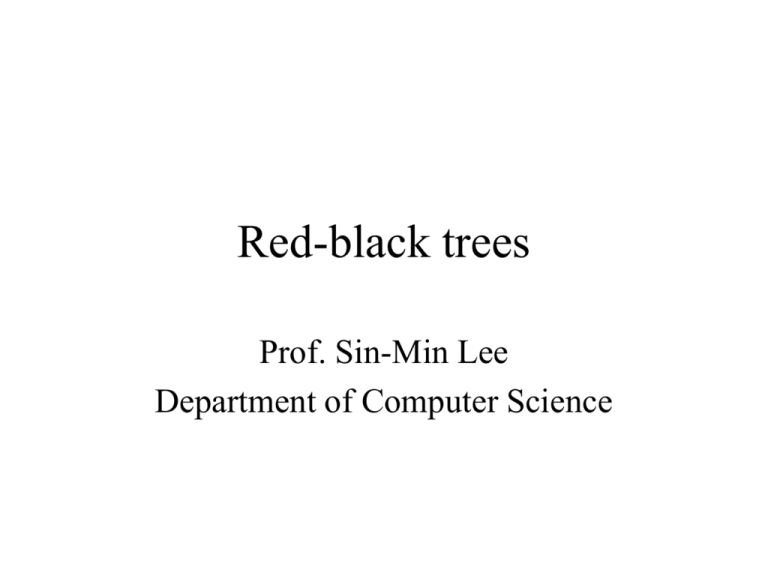
Red-black trees Prof. Sin-Min Lee Department of Computer Science 1. Red-black trees: a binary tree representation of 2-3-4 trees. • Definition: Red-black trees are binary search trees with each node colored red or black and satisfying the following properties: i. Root property: The root is black. ii. External property: All external nodes are black. iii. Internal property: The children of red nodes are black. iv. Depth property: All external nodes have the same black depth. The black depth is the number of black ancestors minus one, or the number of black links from the root to the node. Red-black trees • Red-black trees are an important data structure but their combinatorial properties are not much studied. They were introduced by R. Bayer ("Symmetric binary B-trees: Data structures and maintenance algorithms", Acta Informatica, 1 (1972) 290-306). • From a combinatorial point of view, a red-black tree is an extended binary tree (every node has two children or is a leaf) which satisfies the following properties. • Every node is colored either red or black. • Every leaf node is colored black. • If a node is red, then both of its children are black. • Every path from the root to a leaf contains the same number of black nodes. This number is called the black-height of the tree. Example If Th(x) is the ordinary generating function of the number of red-black trees of black-height h, classified by the number of leaves, then T1(x) = x + x2 and for h > 0, Th+1(x) = [Th(x)]2 + [Th(x)]4. If T(x) is the ordinary generating function of the number of red-black trees, then T(x) = x + x2 + T(x2(1+x)2). If rb(n) is the number of red-black trees with n leaves then rb(1) = 1, rb(2) = 2, and for n > 2, --\ / 2m \ rb(n) = | | | rb(m) / \ n-2m / --n/4 <= m <= n/2 The number of red-rooted and black-rooted trees satisfies the same recurrence relation, but the initial conditions are different. For red-rooted trees, r(1) = r(3) = 0, and r(2) = 1. For black-rooted trees, b(1) = 1.
